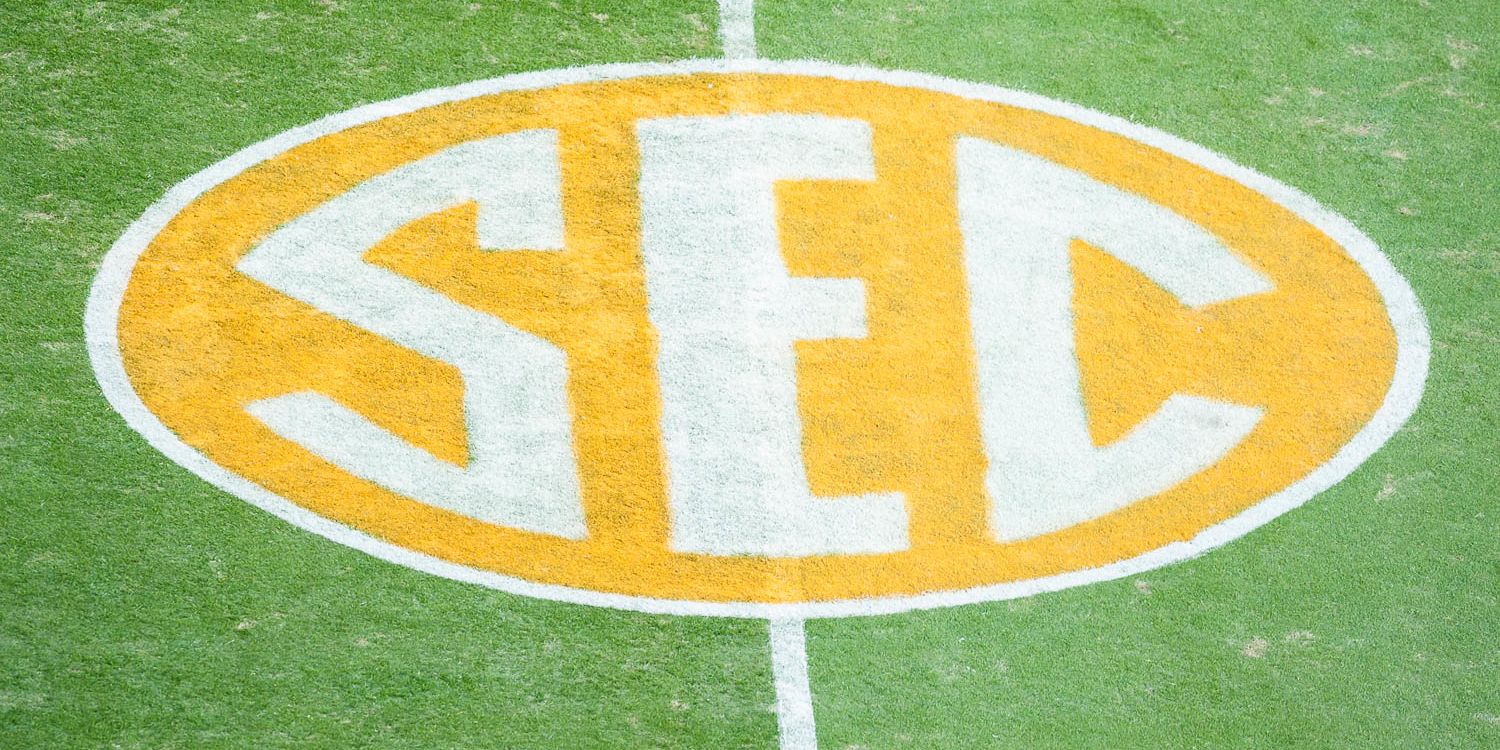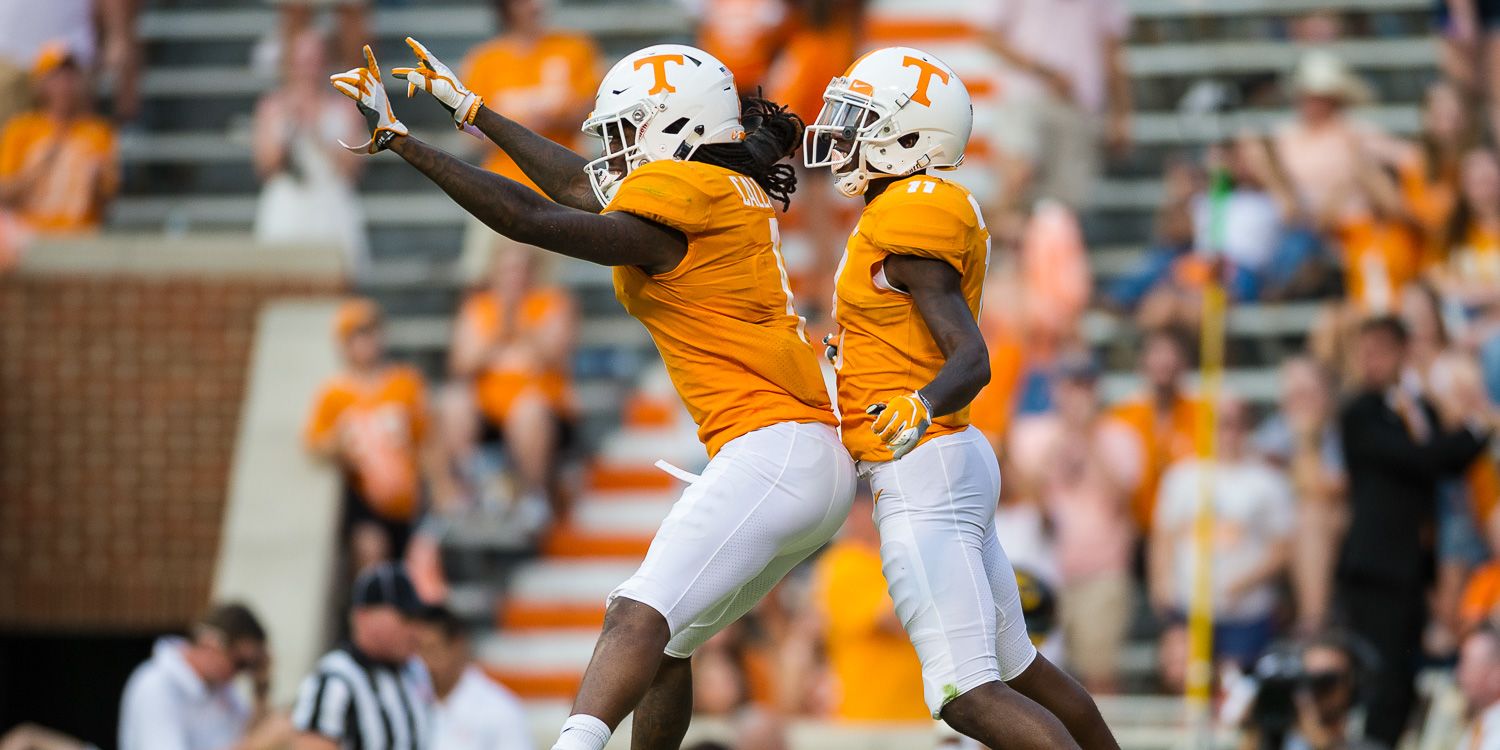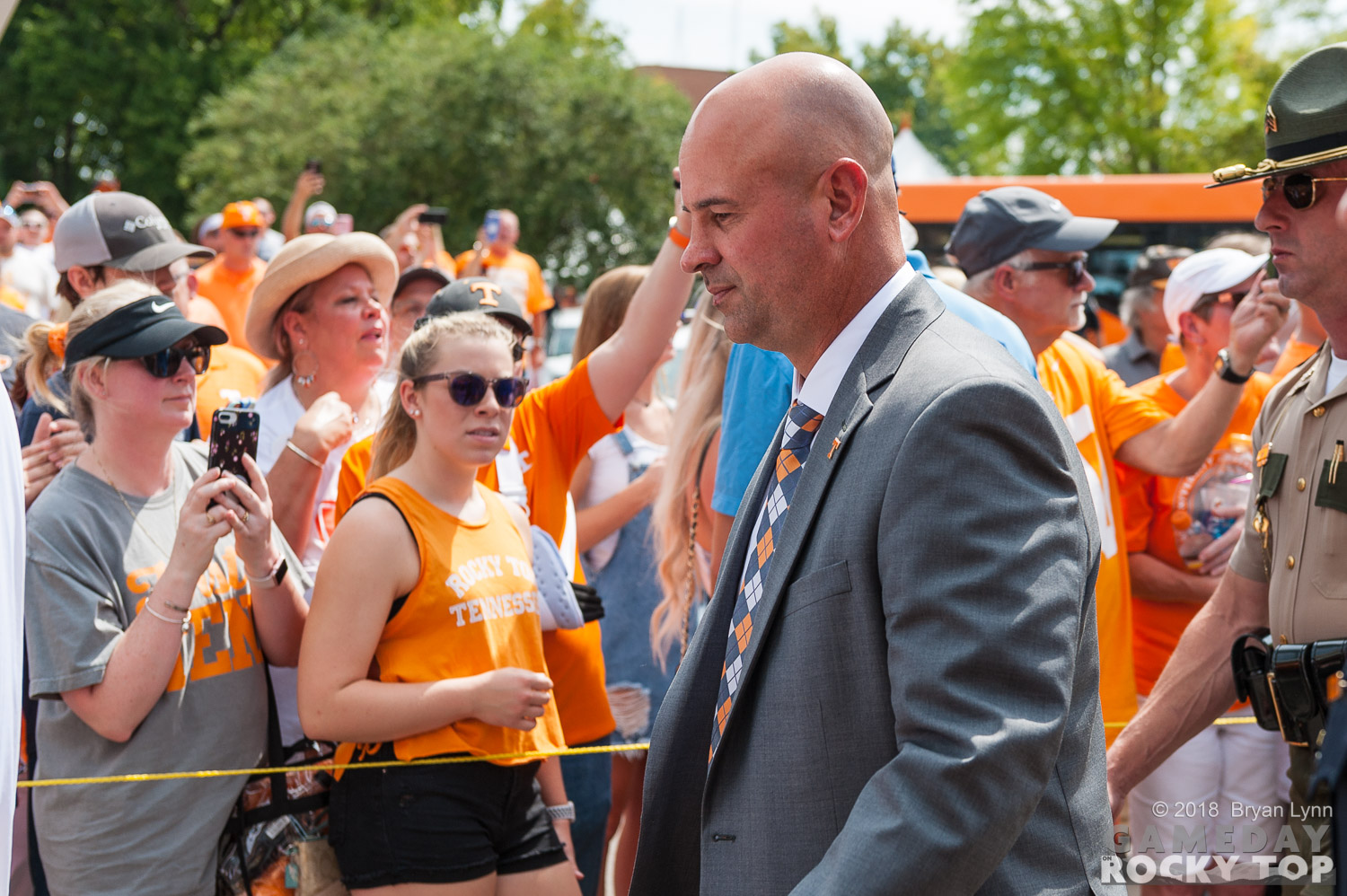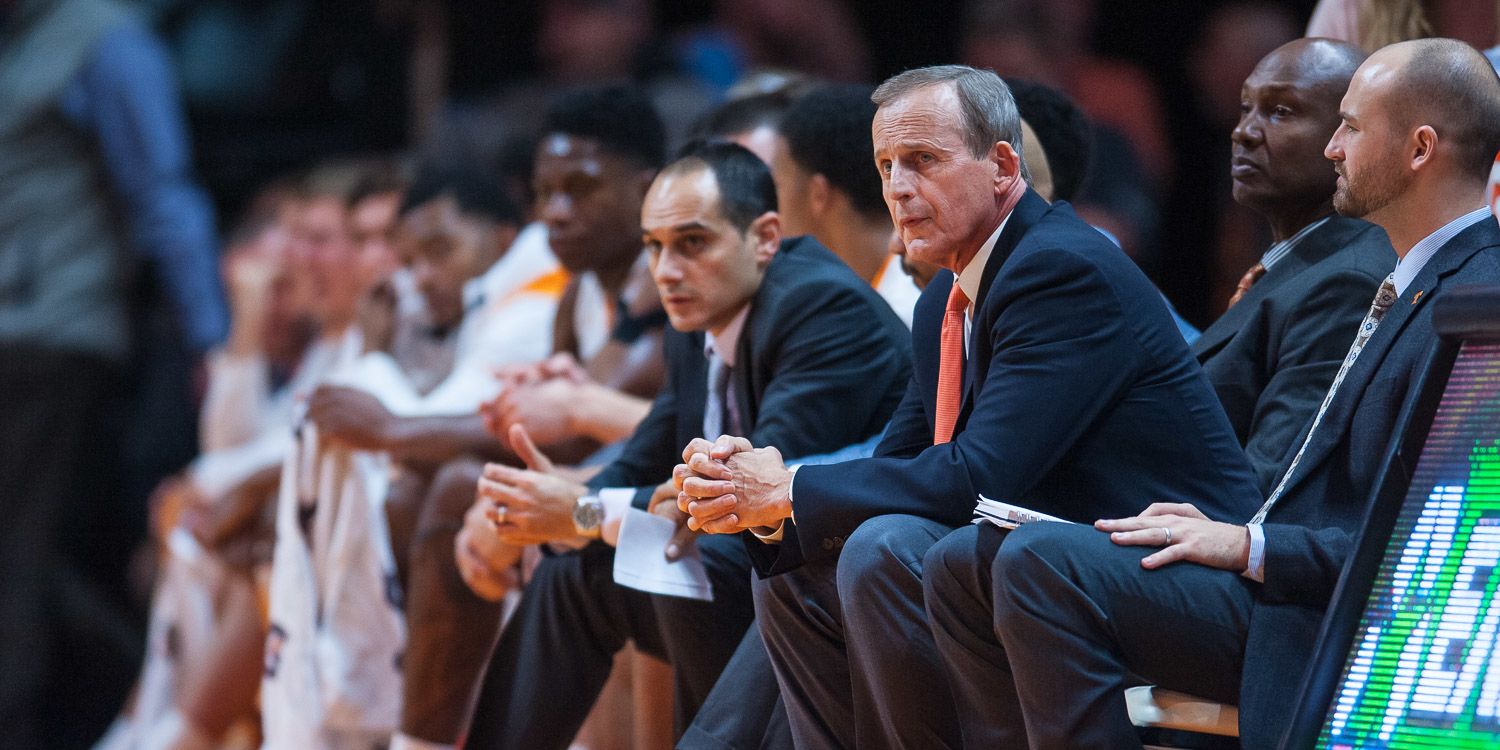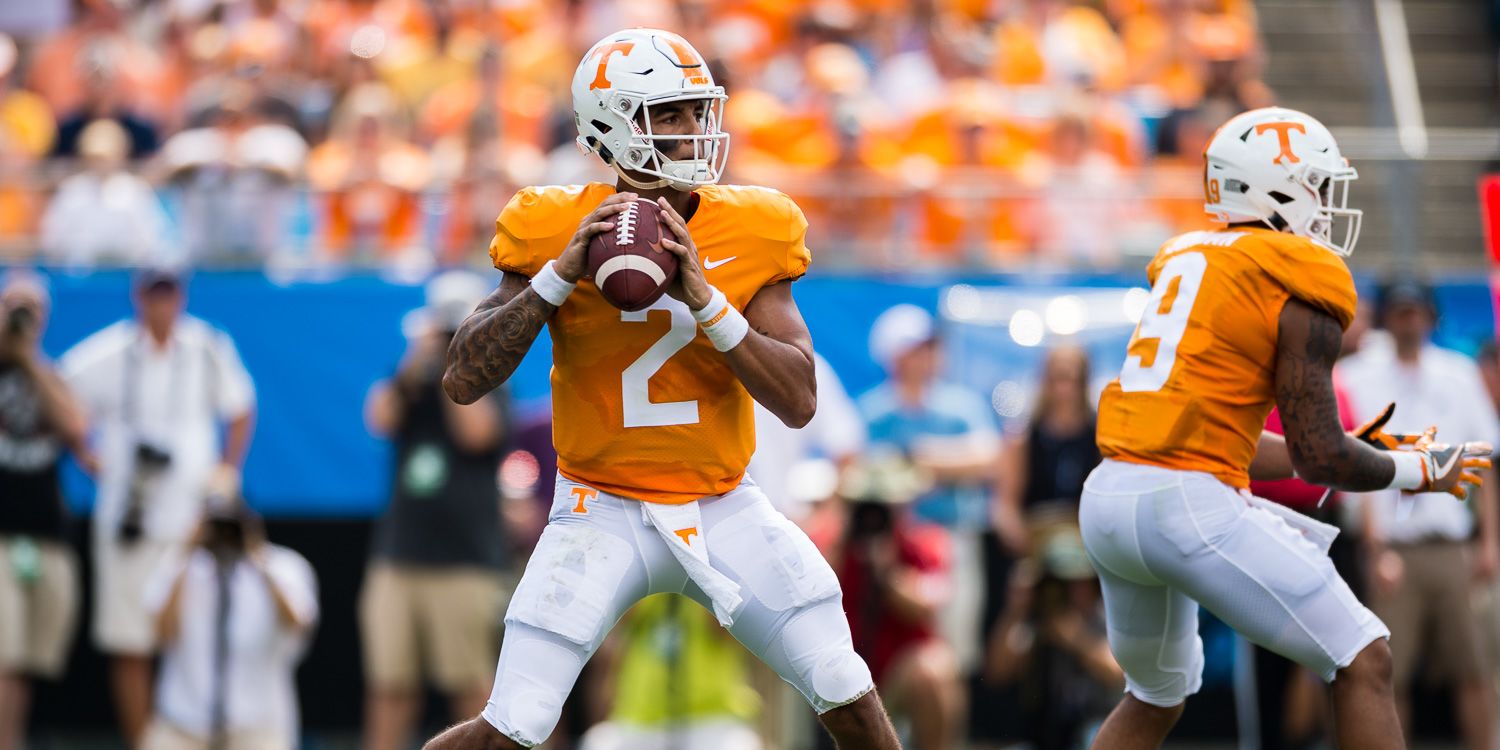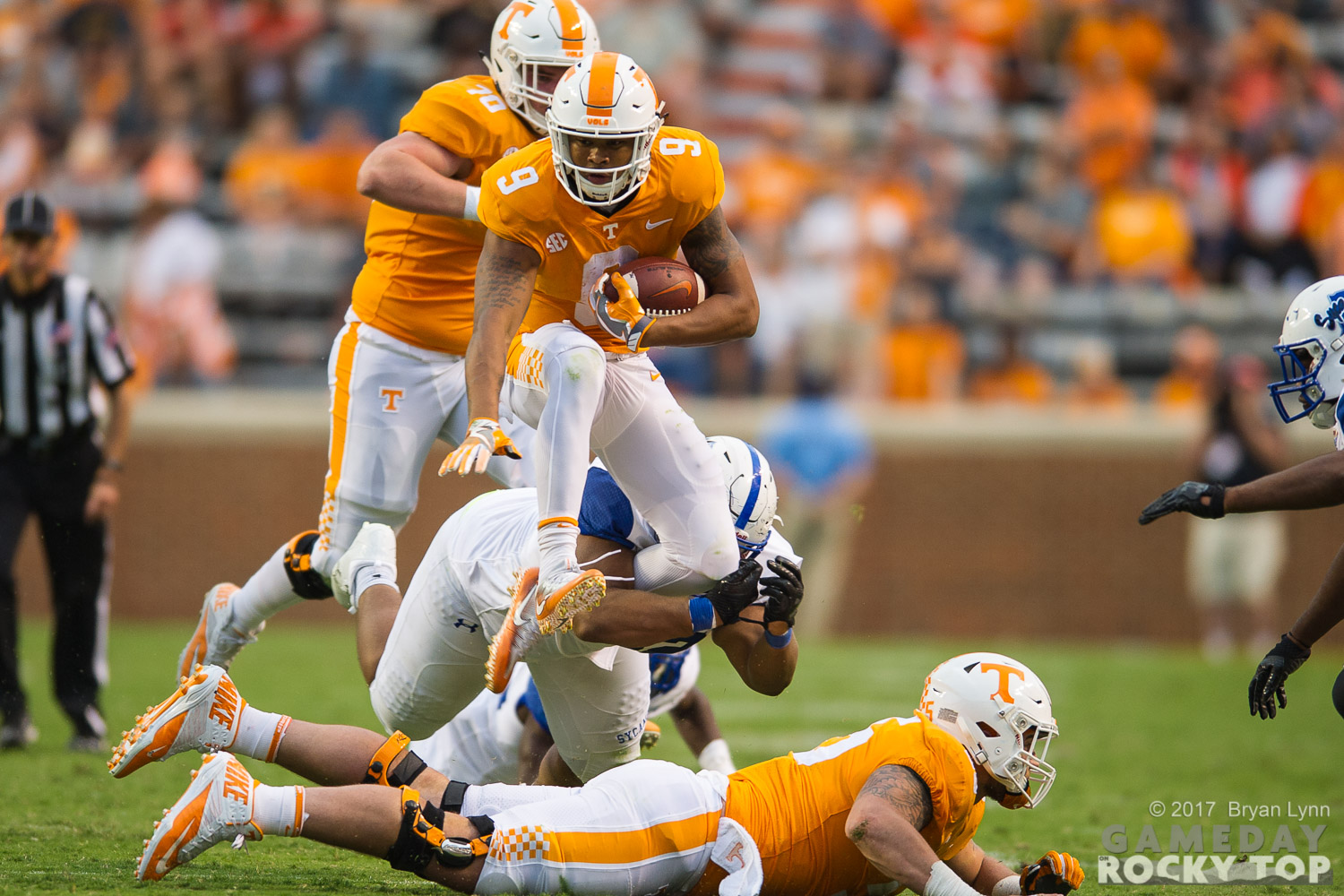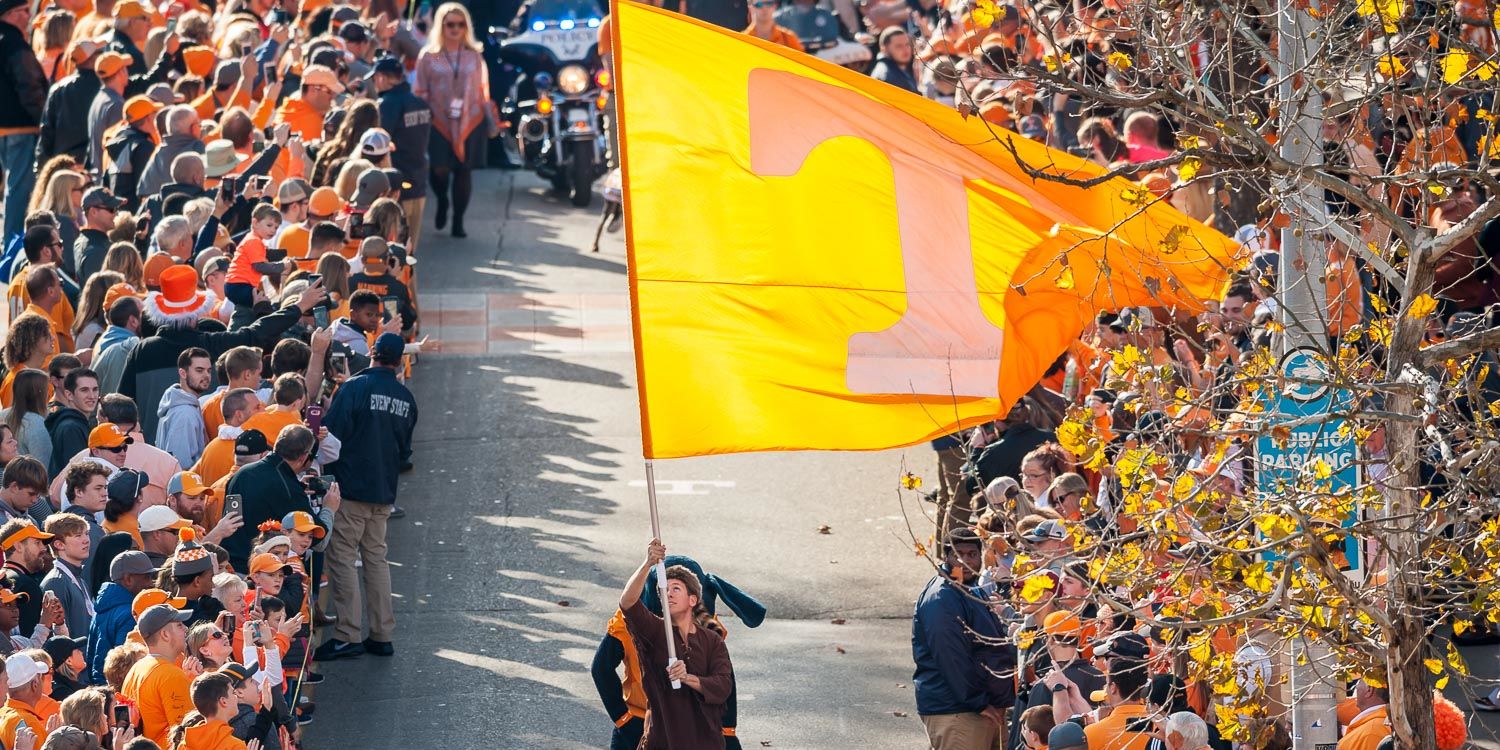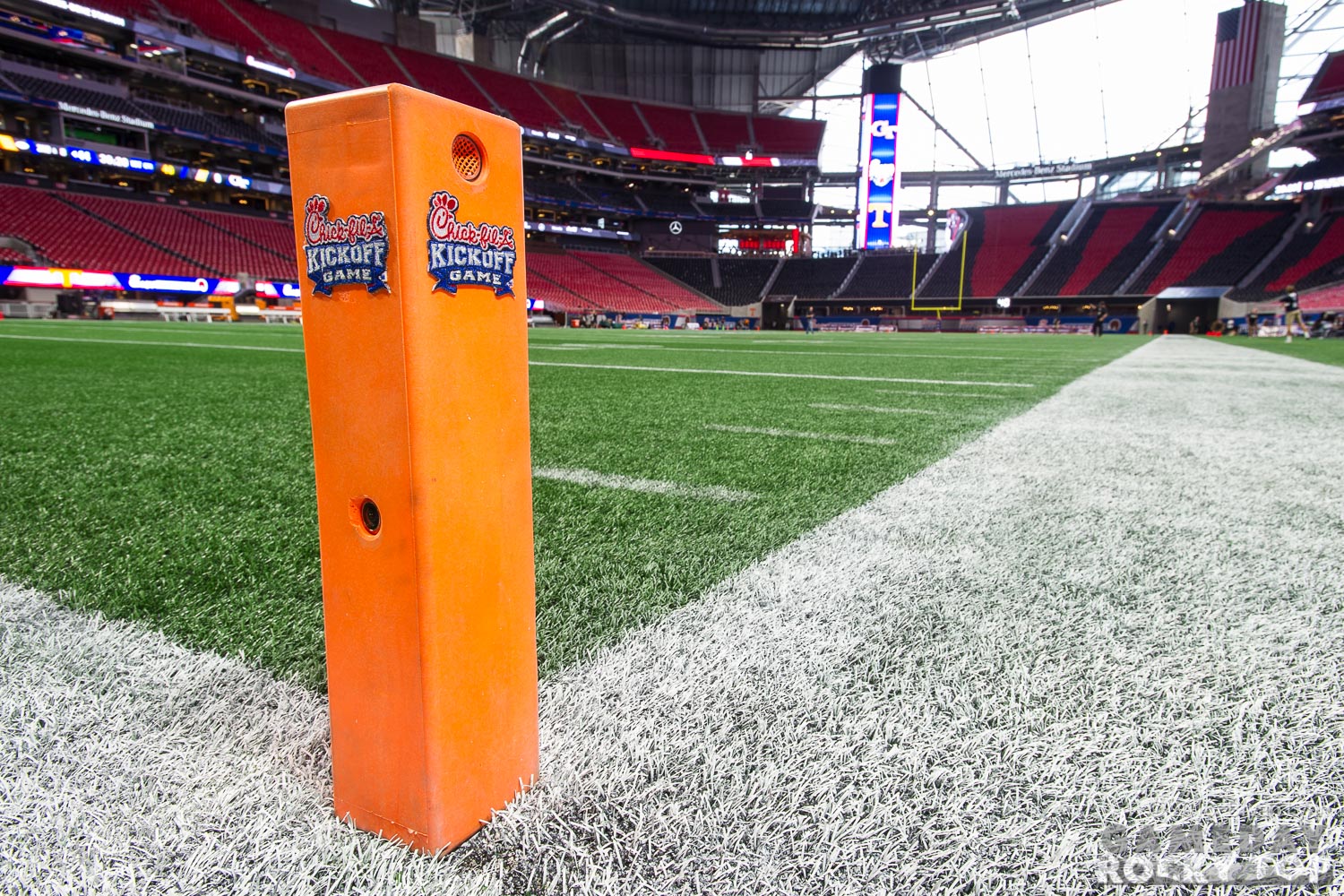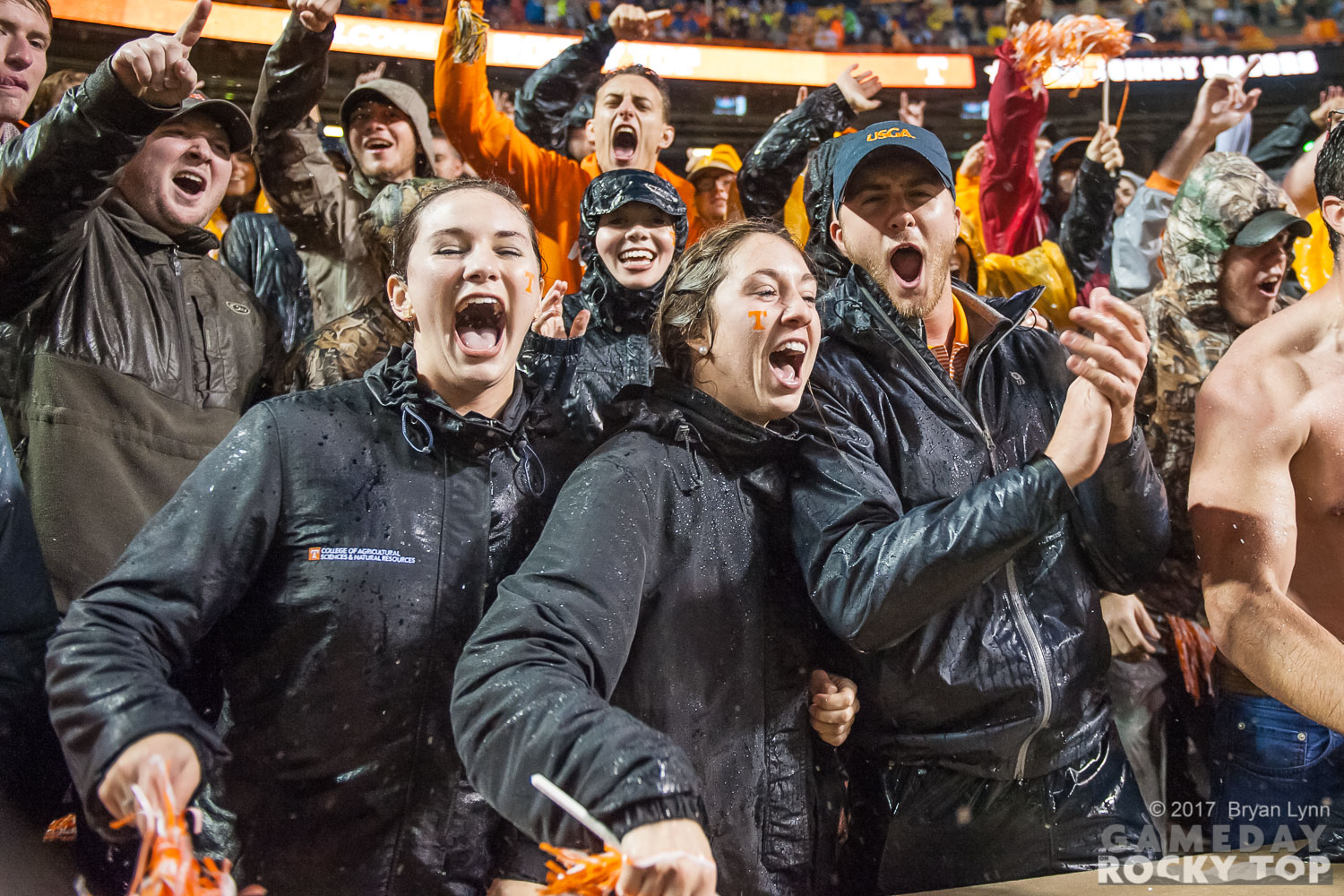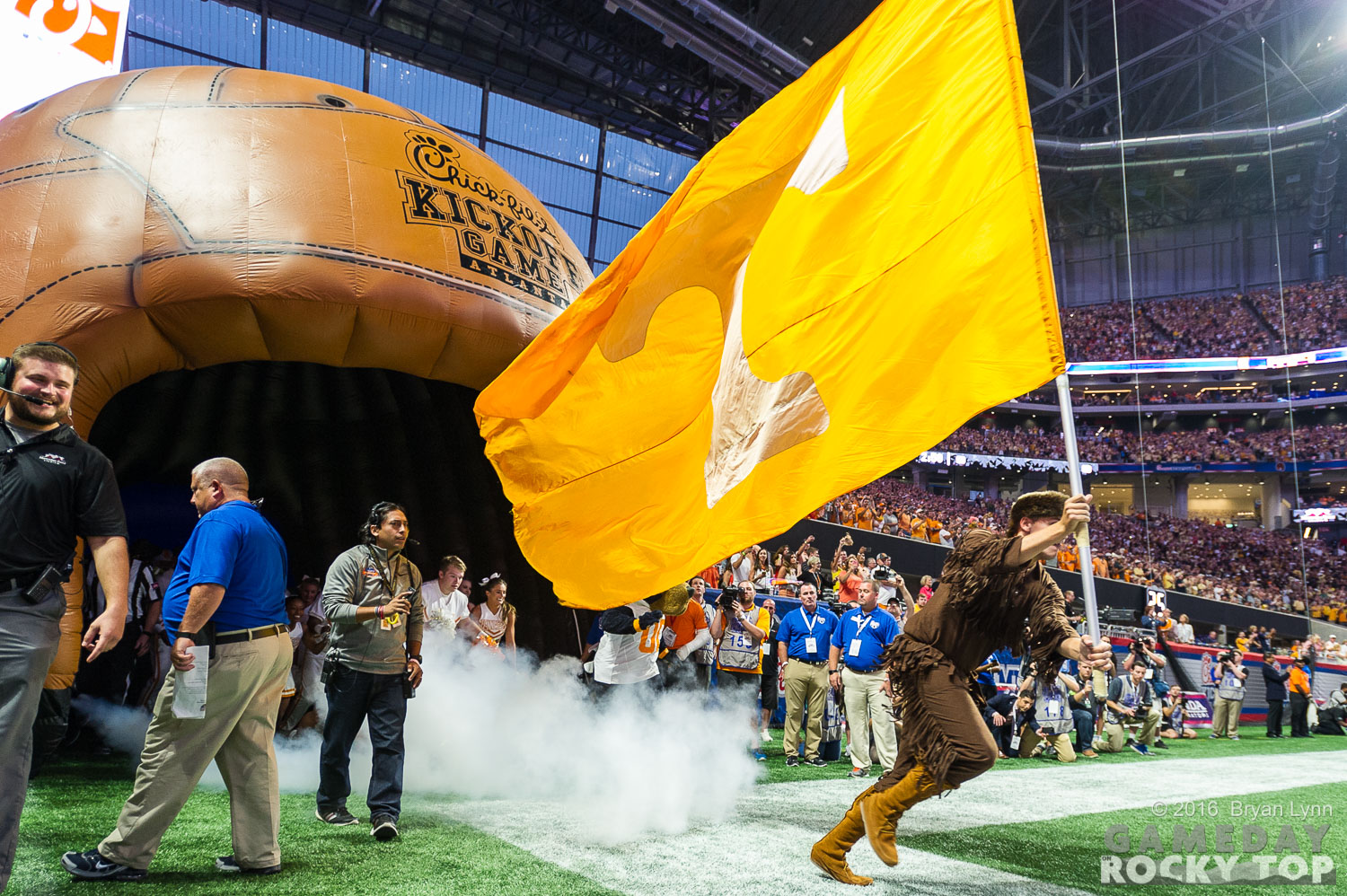Did you know the Vols are 500-to-1 to win the national championship? That’s life-changing money, boys!
Listen, I’ve already got the basketball Vols at 25-to-1 to win it all. Those winnings are set aside to get right with the debt collectors and the Lord, so it’s all limousine ridin’ and jet flyin’ with the rest. My wife had already been telling me I should pay less attention to Butch Jones and more to Rick Barnes long before last fall went right down the drain. And when Admiral dunked that ball at Rupp Arena, I asked her right then and there if we could name our first child Private First Class. She did not go for that, but she’s got an SEC Championship t-shirt in the closet, by God. And you’d better clear out some room for the Pruitt collection.
I mean, with Phillip at the helm, it don’t much matter who the coach is. Only took us a decade to figure that one out. And whenever CPF (ADPF?) decides to retire to Wyoming with a fistful of championships, we can simplify the search process. If you want to involve the common man and the common fan, you don’t have to schedule an on-campus riot to do it. Just get one of us a spot on the search committee. Then have the prospective new AD start down their list of hypothetical coaching candidates. If our first response is, “Who’s that?”, “(Fulmerized) no!”, or “…wait, what?”, you don’t hire that person. Something that simple could’ve saved us from Derek Dooley, Butch Jones, and Greg Schiano.
But we don’t need saving anymore. Fulmer’s bringing championships to the entire athletic department. You do know the only reason we didn’t win the NCAA Tournament is because we got beat by God, right? But only by one point! If Sister Jean’s reward is a Final Four appearance for a mid-major, I know we’re due at least six national championships. She turned 99 this week, and I hope that lady has lots of time left on this earth. But I hope she also knows that in heaven, it’s John Ward and Bill Anderson on the call.
Look man, Jeremy Pruitt got the Tennessee job, got out there ‘cruitin’, then held Clemson’s offense to 2.69 yards per play in his spare time. Remember how excited you were when we signed Kyle Phillips, Shy Tuttle, Jonathan Kongbo, Darrin Kirkland, Nigel Warrior…I mean, basically our entire defense? Now think about them in this guy’s hands. What’s the record for fewest first downs in a season? Wait, is it the Clawfense?
Then on offense, nevermind who’s playing quarterback, this year they’ll have actual coaching! Imagine that! And Florida State fans still believe they’d’ve won the title in ’98 if Chris Weinke was healthy, but he’s not even good enough to coach our QBs! But really, here’s all the coaching they need: get the ball to the guy who wore Gator-skin boots to the postgame, then caught a hail mary, then told the truth about our previous administration IN LANGUAGE THE INTERIM COACH COULD UNDERSTAND. Get the ball to Jauan, and Weinke won’t have the only Heisman on the property. It doesn’t even matter that we could start all four-and-five-stars on the offensive line. One of them is Trey Smith, and he’s been waiting all year to hit somebody. Good luck, West Virginia.
And look, I fully respect a man who refuses to acknowledge the reality of the situation atop his head. I’m a Holgo man. West Virginians are our Appalachian brethren. But the Mountaineers are Diet Tennessee: looks the same, tastes kinda the same but mostly worse, zero national championships.
Then we get Randy Sanders’s ETSU program, who will change their mascot to the screen pass by the end of the year if they haven’t already. But I think they could take UTEP, who went 0-12 last year but only lost 11 of them by at least 14 points.
When I close my eyes and dream, I see the four game winning streak we should be on against the Gators. Instead, we lost once because we wet the bed in the red zone, once because we gave up a 4th-and-17, and once on a hail mary. And that’s just the Cliffs Notes. But one in a row is better than none in a row. Do you know the last Tennessee coach to beat the Gators on his very first try? Phillip By God Fulmer. And never you mind that new coach in Gainesville, the same truth still applies: they ain’t no good. Vols by 30, unless we decide to win 20-17 in overtime as a tribute. And don’t worry, that means we can pay tribute to 1998 against Georgia by keeping them out of the end zone altogether. But I do appreciate the Dawgs helping us move along with our coaching search last fall.
Then it’s Auburn, who beat Alabama last year because the Tide had 1st-and-10 inside the Auburn 40 on their last three drives and scored zero points. That’s not Jeremy’s fault! Sounds like a Saban problem to me. I’m sure their new intern can solve that one. If you don’t think the Pruitt-for-Butch trade makes Tennessee over Alabama the lock of the century, I don’t know what to tell you. How many life championships are Bama fans claiming by now? I can’t keep giving out these winners for free!
We’ve owed Will Muschamp a punch in the face for like six years now, and finally have the coaching staff that will encourage that sort of behavior, metaphorically speaking, instead of being satisfied that we’re close enough to put our hands on them but let’s see what happens in the fourth quarter. Then we play the 49ers, which might’ve been a good game back in the 80’s but I’m not sold on the Garoppolo kid yet. He does have the advantage of moving as far away as physically possible from Tom Brady, but we’ll have to wait and see.
Kentucky? Wait til basketball season. Missouri? I’ve been hoping we’d schedule the Cowboys for years, this is a much easier way to get a piece of Derek Dooley. Vanderbilt? Swept them in basketball too! It don’t matter who we see in Atlanta since we’ll’ve already beaten the two best teams in the division. But in the playoff, I’m pulling for Ohio State, Florida Atlantic, and of course, Wake Forest. Since we’re guaranteed a shot at Butch Jones and Derek Dooley already, I figure we can just go ahead and cleanse our palate altogether.
15-0, National Champions, boys. Then we’re going after that single-season college basketball wins record, which is currently held by three John Calipari teams (or two teams and an asterisk). Get your tattoos now, boys. And don’t tell my wife I already did.
Hey look, only took me nine years to learn about GIFs!
via GIPHY
